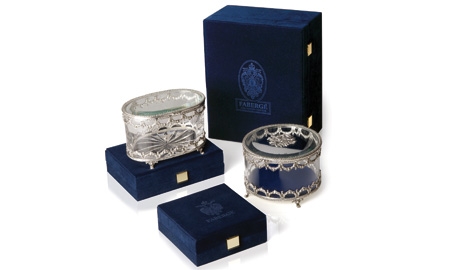
Over the past 10 years, El Salvador has promoted an aggressive trade liberalization policy that has led to the signing of free trade agreements with eight countries (the United States, Central America, Chile, Mexico, Panama, Colombia, Dominican Republic, and Taiwan), opening access to a potential market of 1.1 billion people, with more agreements with Canada, Cuba, Peru and the EU on the table.
The legal framework in El Salvador ensures equal treatment of national and international investors. It also opens up access to local financing and offers investors the freedom to transfer funds and profits abroad. Furthermore, the adoption of the U.S. dollar as legal tender in 2001 has cut out currency risks to the benefit of foreign trade, and the country offers some of the most attractive inflation and interest rates in the region.
Promoting business contacts among international buyers and exporters, the Exporters Corporation of El Salvador (COEXPORT - www.coexport.com.sv) is a private non-profit organization that offers information, support, training and technical assistance to the nation’s exporters. It also provides an advisory service to the government on export-related issues and submits proposals designed to enhance the international competitiveness of Salvadoran exports.
President of COEXPORT Francisco Bolaños states that many important international business partnerships have been forged by its members thanks in large part to the hard working people of El Salvador. “They represent our [nation’s] wealth,” he says. “Our exporters are winners, they have fought to overcome the economic crisis and other vicissitudes, thus becoming the inspiration of many new companies that now follow suit. This is why each exporter – big or small – is so important and deserves our respect, admiration and support. The initiative and creativity of Salvadorans have capitalized on opportunities in various global markets.”
Last year, Salvadoran exports reached $4.471 billion, representing an increase of 17.8% over 2009. Imports also rose 17.8% in 2010, reaching $8.548 billion. The garment industry is the country’s number one exporter, and last year garment exports increased by $342 million to $1.745 billion. Other top exports in 2010 include agro-industrial products ($637 million), food and beverages ($333 million), electrical and mechanical products ($260 million), and textiles ($198 million).
The U.S. is El Salvador’s number one investor and leading trade partner. Bilateral relations were boosted when the U.S.-Central America-Dominican Republic free trade agreement (CAFTA-DR) came into effect in 2006. U.S. goods exports to El Salvador in 2010 reached $2.4 billion, up 20.8% ($421 million) from 2009. Meanwhile some 48% of El Salvador’s exports headed to the U.S. last year, with a value of $2.2 billion in 2010, up 21.5% ($392 million) from 2009.
“We can say that our exports have grown, but this does not mean we should reduce our efforts to expand or we can rest on our laurels,” says Mr. Bolaños. “In fact our exports have not grown, rather they have recovered.”
ARROCERA SAN FRANCISCO
There are more than two million Salvadorans living in the United States, with a huge hankering for good old-fashioned home produce. To meet this demand, Arrocera created All Foods in 2001 to fill this ethnic food gap. Arrocera have developed a vast portfolio of "Back Home Products" for the Latin American market in the U.S and today the company brings almost 300 Latino food products, including the prestigious brand leader Doña Lisa, to consumers in the U.S and Canada. Rice and beans, pickled vegetables and conserves, tropical canned soups, atoles and powder refreshments, and refried beans are just a few of the company´s stalwarts. As well as producing their own brand products, Arrocera distribute many other barnds too. “We are passionate about delivering good quality food to the Latino market,” said company president Guillermo Novoa.
www.arrocerasanfrancisco.com
SIGMAQ
Another example of Salvadorans’ market creativity is at packaging multinational SigmaQ, which is the regional packaging leader thanks to its use of technology, innovative designs and environmentally friendly products. It serves 2,800 clients in more than 100 countries with items that include folding cartons and luxury, corrugated and flexible packaging, among others. From the design of the package to production technology, material selection and legal guidance, SigmaQ has become a global front-runner in the industry. “Our focus is to help position our clients and this leads to creative designs. SigmaQ has over 120 packaging designers. We put a lot of attention to this aspect, which leads us to be more creative,” says company CEO Henry Yarhi.
www.sigmaq.com
ALAS DORADAS
Alas Doradas is a company devoted to producing and selling pre and post-consumer recycled paper, thus promoting a clean environment. The company has developed a boutique paper product line that uses 100 per cent recycled paper, vegetable-based inks and organic materials in its ranges of school and office notepads, writing paper, napkins and kitchen rolls. As part of its social responsibility, Alas Doradas has installed a wastewater treatment plant to treat every drop of water used in the production of its products. “At Alas Doradas, we make every effort to obtain the best quality in raw materials for our products. Our team is focused on contracting the best suppliers within the market, to ensure compliance with worldwide accepted quality standards,” said Guy Wyld, general manager of Alas Doradas.
www.alas-doradas.com
0 COMMENTS